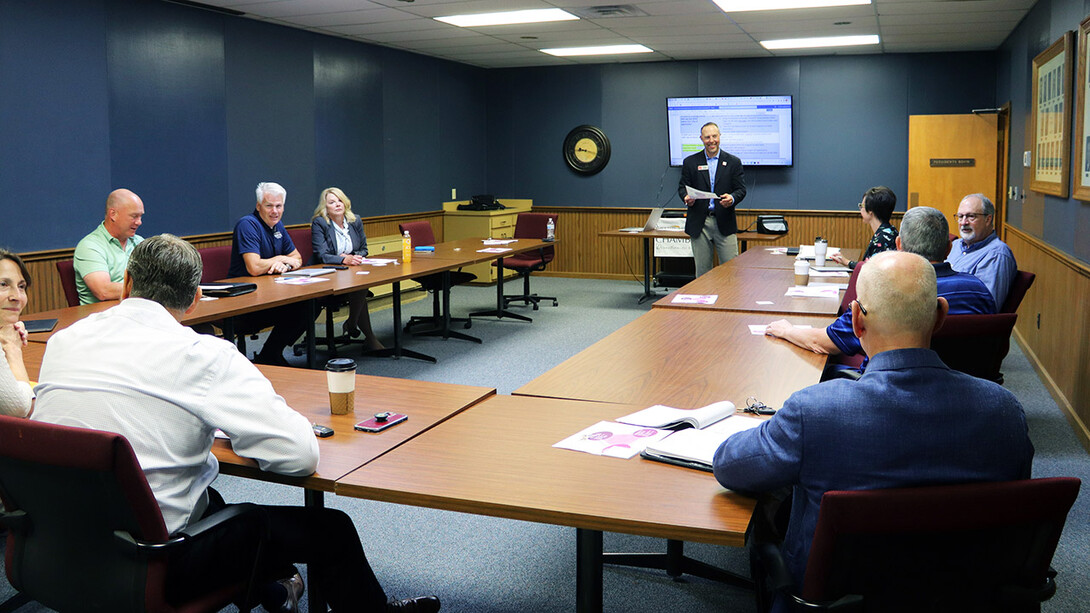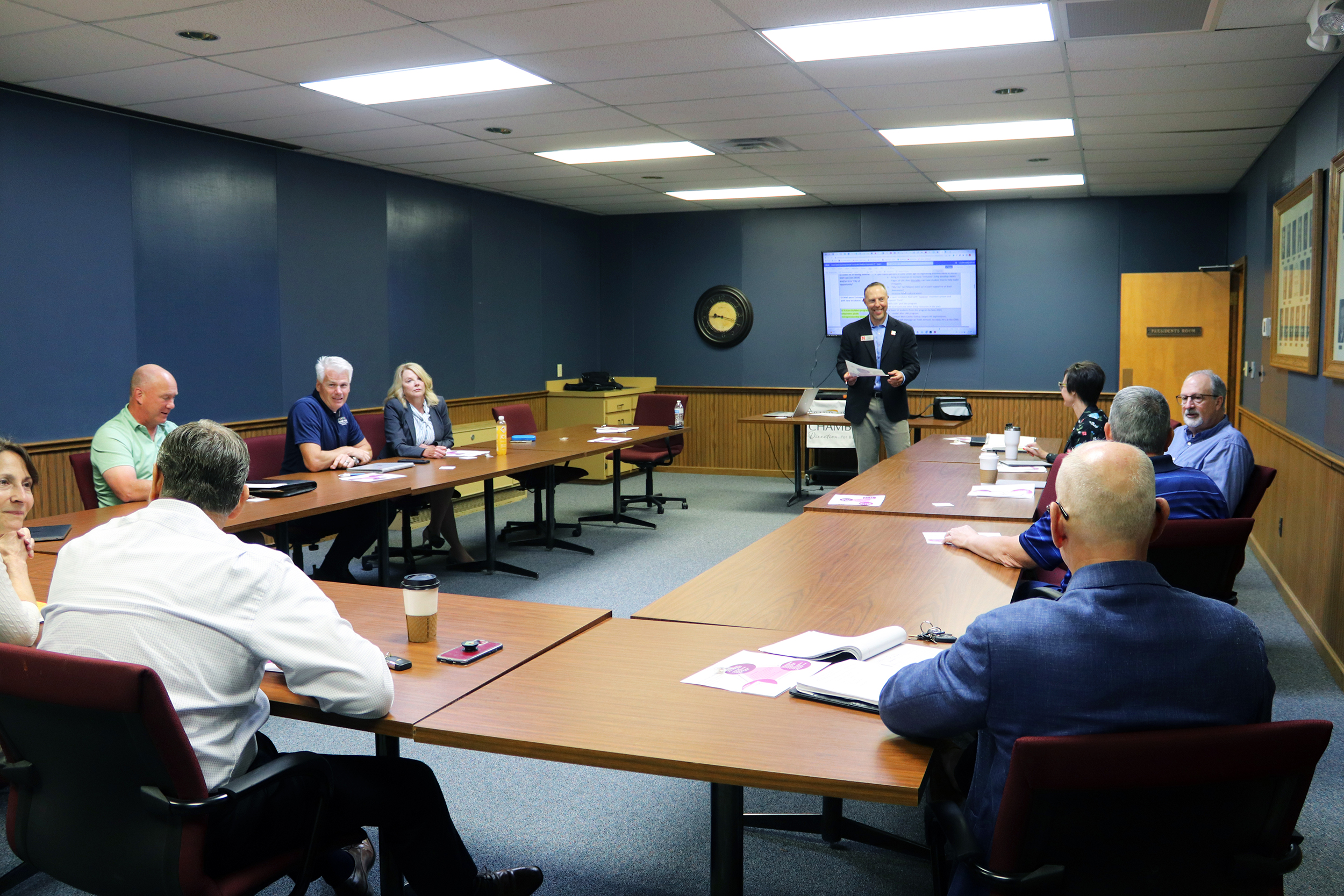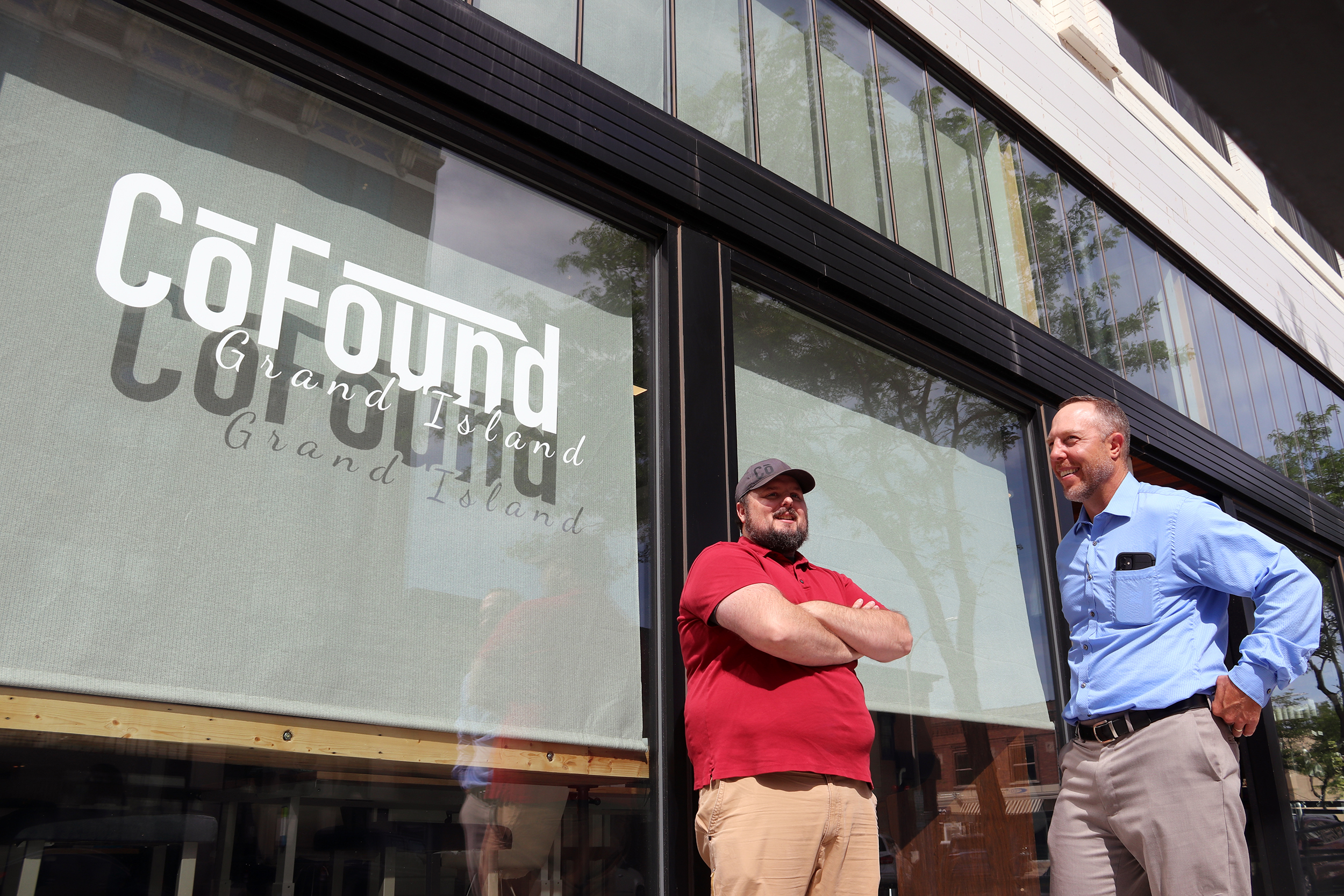
The term “community environment” can cover everything from culture to safety to infrastructure. But when Shawn Kaskie, a Rural Prosperity Nebraska extension educator based in Broken Bow, discusses community environment, he has one specific meaning in mind.
“For communities to thrive,” Kaskie said, “leaders and business owners must build and grow a robust entrepreneurial environment.”
To help foster an entrepreneurial mindset within rural Nebraska, Kaskie created eCommunities, a program funded by the U.S. Economic Development Administration that focuses on helping communities identify, collect and cultivate resources that encourage entrepreneurship within their towns. He’s working with three entrepreneurial coaches (eCoaches) and six communities: Doris Lux in the greater Columbus area; Caleb Pollard in Broken Bow, Ord and Valentine; and Teliza Rodriguez in Grand Island and the greater Hastings area.
Having recently passed the halfway point in the two-year program, Kaskie said he’s proud of the shift in thinking about entrepreneurship he has witnessed so far.
“Attitudes and mindsets matter,” Kaskie said. “When we believe we can be successful, we tend to be more successful. When we are labeled as challenged with limited potential, we often are held back by holding ourselves back.”
With the guidance of Kaskie and his team of three entrepreneurial coaches, the eCommunities program follows an outline aimed at getting people to start thinking about what success looks like in their towns. It begins with conversations among community-selected steering committee members who focus on identifying the strengths and weaknesses of their entrepreneurial climates.
For example, the Grand Island committee was quick to recognize where they struggled.
“We hadn’t created, fostered, grown, supported (the entrepreneurship) area of our business development for years,” said Cindy Johnson, a member of Grand Island’s committee and the Chamber of Commerce. “We’re a community that was founded by entrepreneurs, but there was a gap.”
These discussions lead communities to the next step in the process, creating goals and action plans to bolster the strengths and build up areas that may be lacking. While the program follows an outline, the results so far have varied city to city — exactly as it was designed to.
“Yes, there are phases to this process,” Kaskie said, “but this is community coaching. It’s all locally responsive.”

The Grand Island committee is now focusing part of its efforts on a youth entrepreneurship program for the 2022-23 school year. High school sophomores from across Hall County can volunteer to take a Gallup test geared toward identifying propensities toward entrepreneurship. The top 10% will attend a two-day workshop, dubbed Inspiration Rally.
During the workshop, students will complete one of two tasks, said Dave Taylor, Grand Island’s economic development director. Either they create a business idea within their groups, or participating communities submit a problem they are experiencing, and students propose solutions to rectify the issue.
“Then it becomes a ‘Shark Tank’-type situation,” Taylor said. “The winning team will receive a $1,000 reward for their innovative ideas.”
Efforts on the ground to strengthen entrepreneurial environments vary, from organizing youth-centered programs to founding a collaborative coworking space for business startups, one of Columbus’ goals. In Ord, Lacy Griffith, owner of The Ord Quiz and Quiz Graphic Arts, worked with an eCoach to bring web-based technology to increase the productivity of her businesses.
“We had been using paper job tickets, and it was a nightmare,” Griffith said. “One of the first things (our eCoach) suggested was finding an online production management tool to keep everything together in a place where everyone can get to it. Honestly, it’s helped so much.”
“It has increased efficiency, which has helped create more business, because you have more time to do more business,” said Kristina Foth, office manager. “If a community does have the opportunity or resources to employ a business coach, it’s a powerful message to be able to say, ‘We want our community to grow; therefore, we’re investing in local businesses to provide them with individualized, one-on-one support.’”
Whatever the results of working with eCoaches, the spirit behind individual cities’ activities is a constant across Nebraska. eCommunities helps foster that spirit, Kaskie said.
“Community capacity building is foundational for every community, from the largest and most vibrant to the smallest and most distressed,” he said. “Entrepreneur-led development, done right, inherently builds community capacity to do more with both entrepreneurs and overall community economic development. Human talent — motivated, passionate, capable — is the building block of today’s successful economies and communities.”
Though the eCommunities program is funded for only two years, Kaskie hopes the impact will last much longer.
“People attraction, development and retention, coupled with smart quality-of-life placemaking, evolves a community and regional environment where entrepreneurs — and the communities in which they live, work and play — thrive,” Kaskie said. “With the prosperity development framework in mind, entrepreneurial ecosystem building is the means to our desired ends.”









